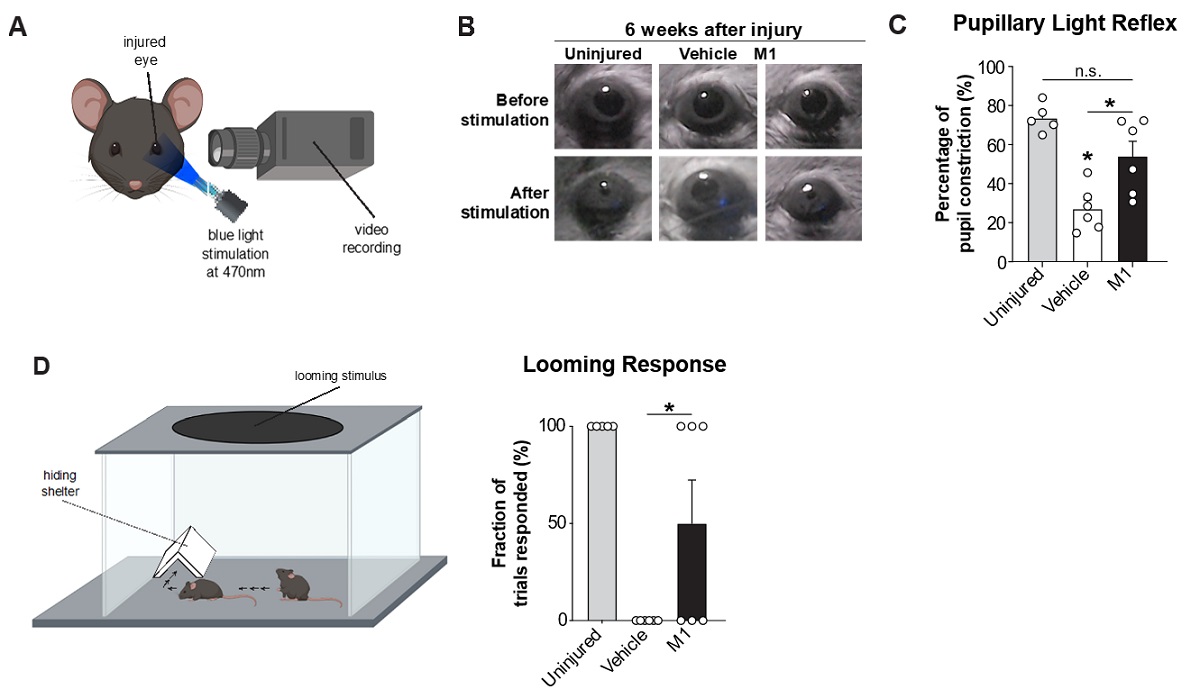
Traumatic injury to the brain, spinal cord and optic nerve in the central nervous system are the leading cause of disability and the second leading cause of d...
Read More

Traumatic injury to the brain, spinal cord and optic nerve in the central nervous system are the leading cause of disability and the second leading cause of d...
Read More
Injection prevented severe pediatric form of disease in mice, could be used to treat adult glaucoma. A Northwestern Medicine study in mice has identified new treatment targets for glaucoma, including preventing a severe pediatric form of glaucoma, as well as uncovering a possible new class of therapy for the most common form of glaucoma in adults.
In people with high pressure glaucoma, fluid in the eye doesn’t properly drain and builds up pressure on the optic nerve, leading to vision loss. It affects 60 million people worldwide and is the most common cause of blindness in people over 60 years old.
While there are a few treatments available for open angle glaucoma, the most common form of glaucoma in adults (eye drops, oral medication, laser treatments), there are no cures, and ...
Read More
Consuming large amounts of daily caffeine may increase the risk of glaucoma more than 3X for those with a genetic predisposition to higher eye pressure according to an international, multi-center study. The research led by the Icahn School of Medicine at Mount Sinai is the first to demonstrate a dietary — genetic interaction in glaucoma. The study results published in the June print issue of Ophthalmology may suggest patients with a strong family history of glaucoma should cut down on caffeine intake.
The study is important because glaucoma is the leading cause of blindness in the United States. It looks at the impact of caffeine intake on glaucoma, and intraocular pressure (IOP) which is pressure inside the eye...
Read MoreUnexpected findings show that the body’s own immune system destroys retinal cells. A new study from MIT and Massachusetts Eye and Ear has found that glaucoma may in fact be an autoimmune disorder. In a study of mice, the researchers showed that the body’s own T cells are responsible for the progressive retinal degeneration seen in glaucoma. Furthermore, these T cells appear to be primed to attack retinal neurons as the result of previous interactions with bacteria that normally live in our body.
The discovery suggests that it could be possible to develop new treatments for glaucoma by blocking this autoimmune activity, the researchers say...
Read More
Recent Comments